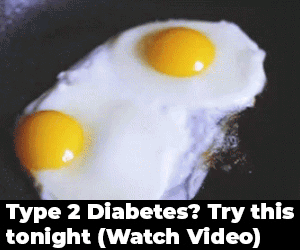Are you tired of struggling with your weight and feeling sluggish? What if there was a diet that could help you shed those unwanted pounds while also improving your overall health? Enter the ketogenic diet, a low-carb, high-fat eating plan that has taken the world by storm. But how exactly does this approach to nutrition work its magic? Get ready to uncover the secrets behind the keto diet’s remarkable ability to transform bodies and lives.
Key Takeaways
- The keto diet puts your body into a metabolic state called ketosis, where it burns fat for energy instead of carbs.
- Drastically reducing carb intake and increasing fat consumption are the keys to achieving and maintaining ketosis.
- The keto diet can lead to significant weight loss, reduced inflammation, better brain function, and a lower risk of diabetes and heart disease.
- Keto-friendly foods include healthy fats, low-carb vegetables, and moderate amounts of protein.
- The keto diet has gained popularity for its ability to help people lose weight and improve various health markers.
Entering Ketosis: The Key to Keto Weight Loss
When you cut down on carbs on the keto diet, your body changes in a big way. This change is called ketosis. It’s the main reason behind the keto weight loss many people talk about.
Restricting Carbs and Burning Glycogen
First, your body uses up the carbs stored in your muscles and liver, known as glycogen. This leads to a quick loss of water weight as these glycogen stores get used up.
The Shift to Fat Burning
After using up glycogen, your body starts to use fat for energy. It produces ketones that can be used as energy. This switch to fat burning is what makes the keto diet work for weight loss and health.
“The shift to fat burning is the key to the weight loss benefits of the keto diet.”
By eating fewer carbs and getting into ketosis, you help your body burn fat for energy. This leads to lasting keto weight loss. This metabolic state is key to the keto diet’s success in managing weight and improving health.
Water Weight: The Initial Dramatic Drop
Starting the keto diet can lead to a big weight loss in the first week or two. But, this drop is mostly from losing water weight, not fat. Your body has glycogen stored in muscles and liver, which holds water. When you burn through these carb stores, the water is released, making you lose weight quickly.
If you’re bigger, you’ll likely lose more water weight at the start of keto. This can be quite a drop, with some people losing 5-10 pounds in a few days. Though it’s exciting, remember, this isn’t long-term fat loss.
After your body adjusts to the keto diet and enters ketosis, weight loss slows down. Then, you’ll start to lose fat more consistently. This marks the start of the keto diet’s real benefits.
“The key to sustainable weight loss on the keto diet is to focus on the long-term benefits, not just the initial dramatic drop on the scale.”
The Science Behind Keto Diet and Fat Loss
Are you thinking about trying the keto diet for weight loss? It’s key to know how it works. The keto diet helps with fat loss by putting your body into ketosis.
Increased Fat Burning and Metabolic Rate
By cutting carbs and staying in ketosis, your metabolism changes. Your body uses fat for energy instead of glucose. This increased fat burning leads to more fat loss on keto.
The keto diet also increases metabolic rate. This makes your body burn stored fat better. This boost comes from turning fat into ketones, which takes more energy.
Feeling Full on Fewer Calories
The keto diet makes you feel full on fewer calories. Its high-fat, low-carb nature reduces hunger. This helps you stay in a calorie deficit and reach your weight loss goals. The diet also releases hormones that make you feel satisfied.
Learning about the science behind keto diet and fat loss helps you decide if it’s for you. The diet’s benefits include more fat burning, a higher metabolic rate, and feeling full. These can help you meet your weight loss goals.
Versions of the Keto Diet
The keto diet comes in many forms, each with its own goals and benefits. The strict version was made to help with epilepsy. The more popular version is for losing weight. Knowing the differences can help you pick the right type for you.
Strict Keto for Epilepsy Treatment
The strict keto diet started in the 1920s to treat epilepsy. It means eating very few carbs, with only 4% of your calories from them. Doctors often watch over people on this diet to manage seizures and other brain conditions.
Standard Keto for Weight Loss
The standard keto diet is the most popular type. It has a mix of 75% fat, 20% protein, and 5% carbs. This diet helps with weight loss by making your body burn fat instead of carbs. People choose it for better energy and less inflammation.
| Strict Keto for Epilepsy | Standard Keto for Weight Loss |
|---|---|
| 4% carbs, 20% protein, 76% fat | 5% carbs, 20% protein, 75% fat |
| Primarily used for medical conditions | Primarily used for weight loss and general health |
| Requires medical supervision | Can be self-managed |
Whether you want the strict keto for epilepsy or the standard one for weight loss, it’s good to know the differences. This can help you find the best diet for your goals and needs.
Keto Diet and Low Carb Eating for Athletes
The keto diet and low-carb eating help with weight loss and health. They also help athletes. The targeted keto diet lets athletes eat a bit of carbs (about 25g) before hard exercise. This gives them fast energy for sports without stopping fat-burning.
This diet is great for athletes needing quick energy, like sprinters or weightlifters. But, it’s not always the best for endurance sports. The results of the keto diet on endurance are not always the same.
Balancing Carbs and Ketosis
Finding the right balance between carbs and ketosis is key for athletes. Eating a little carbs before a workout gives them quick energy. It also keeps their body burning fat. This is good for athletes who want to perform well on a low-carb, keto diet.
How well the keto diet works for athletes varies. It depends on the sport, how hard they train, and how they react to low-carb diets. Athletes should talk to a health expert to find the best diet for them. This ensures they perform well and recover right.
High-Protein Keto for Bodybuilders
If you’re a bodybuilder or want to keep your muscle mass, a high-protein keto diet might be best for you. This version of the diet has more protein, making up about 30% of your daily calories. The rest comes from fat (65%) and only 5% from carbs.
More protein helps protect your muscles while you’re burning fat. This diet is a favorite among fitness lovers and bodybuilders who want to lose fat without losing muscle.
But, if you have kidney problems, be careful with too much protein. It can cause harmful waste to build up in your blood. Always talk to a doctor before starting a high-protein keto diet, especially if you have health issues.
| Macronutrient Breakdown | Percentage |
|---|---|
| Protein | 30% |
| Fat | 65% |
| Carbs | 5% |
“The higher protein intake helps protect lean muscle while still keeping the body in a fat-burning state.”
By balancing high-protein with low-carb, the high-protein keto diet is great for keto for bodybuilding and keeping muscle during fat loss. Just remember to think about your own health needs and adjust your diet as needed.

Cyclical Keto: Taking Breaks for Sustainability
Starting a cyclical keto diet can change the game for those looking for lasting weight loss and better health. It means switching between strict keto periods and days with more carbs. This helps make the keto lifestyle easier and more fun over time.
This diet has many benefits. It helps avoid the “keto flu” by adding carbs back in. Plus, these higher-carb days give you a break, preventing binge eating or giving up on the diet.
“Cyclical keto is a smart way to make the keto diet more sustainable in the long run. The alternating periods of strict keto and carb refeeds can help you avoid burnout and make the lifestyle change more manageable.”
But, not everyone can do the cyclical keto diet. Some might struggle to keep carb intake in check, which could lead to weight gain. Make sure you’re fully adapted to a regular keto diet before trying this method. This ensures your body can handle the changes in what you eat.
Choosing a cyclical keto diet or keto cycling depends on what you want and need. Think about the good and bad points to make a smart choice. This way, you can start a healthy journey that lasts.
The Lazy Keto Approach: Tracking Carbs Only
If the strict tracking of a standard keto diet feels too hard, try the “lazy keto” method. This method focuses on keeping your carb intake low (usually under 50g a day) to stay in ketosis. It’s simpler and can still offer many benefits of a strict keto diet, but it might not help with weight loss as much if you don’t balance your protein and fat.
The lazy keto diet is great because it lets you enjoy ketosis without tracking every gram of food. It’s perfect for beginners or those who find it hard to stick to a strict keto plan. By just watching your carb intake, you can still feel more energetic, eat less, and burn fat.
- Simplified approach to the keto diet
- Only track your daily carb intake, keeping it under 50g
- Still experience the benefits of ketosis, such as increased energy and fat burning
- May be less effective for weight loss compared to a strict keto diet
The lazy keto diet is easier but still needs you to watch your carb intake to stay in ketosis. If you’re looking to lose a lot of weight, a stricter keto plan might be better. But if you want a simpler way to enjoy a low-carb lifestyle, lazy keto could work well for you.

“The lazy keto diet allows you to reap the rewards of ketosis without the added complexity of tracking every gram of fat, protein, and carbs.”
Additional Benefits of the Keto Diet
The keto diet offers more than just weight loss. It can help lower the risk of chronic diseases like heart disease, diabetes, and some cancers. This is by cutting down on processed and high-carb foods that cause inflammation.
The keto diet also boosts brain energy with ketones. This can improve brain function, memory, and focus. People often feel more energized and clear-headed on this diet.
Reduced Inflammation and Disease Risk
The keto diet is great for reducing inflammation. It does this by cutting out foods that cause inflammation, like refined carbs and unhealthy fats. This can lower the risk of chronic diseases such as heart disease, diabetes, and some cancers.
Improved Brain Function and Energy Levels
The keto diet also benefits the brain and energy levels. Ketones from ketosis fuel the brain well, improving memory, focus, and mental clarity. Many on the keto diet feel more alert and full of energy all day.
| Benefit | Description |
|---|---|
| Reduced Inflammation | The keto diet lowers inflammation in the body, reducing chronic disease risk. |
| Improved Brain Function | Ketones from ketosis are great brain fuel, enhancing cognitive function, memory, and focus. |
| Increased Energy | Many find the keto diet makes them more alert, energized, and clear-headed all day. |
“The keto diet has allowed me to feel more energized and focused than ever before. It’s been a game-changer for my overall health and well-being.”
Conclusion: Is Keto Right for You?
The keto diet can help you lose weight and boost your health. But, it’s key to talk to a healthcare expert before starting, especially if you have health issues or take medicine. Not everyone can do the keto diet, and it’s important to pay attention to your body. Make changes as needed to keep the diet working for you.
Whether the keto diet is right for you depends on your health, lifestyle, and what you like. If you’re thinking about the keto diet, start by learning about it, talking to a pro, and making a plan that fits your health goals. Remember, everyone is different, and what’s good for one person might not be for another.
If you’re not sure about trying the keto diet, talk to your doctor or a dietitian. They can look at the pros and cons for you and help you switch to a keto lifestyle safely. They’ll also support you to reach your health goals in a way that’s right for you.






